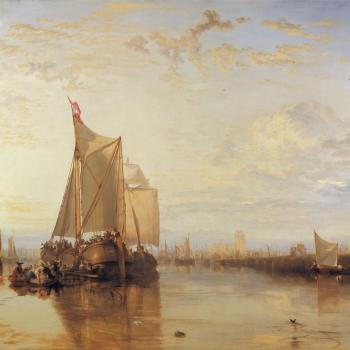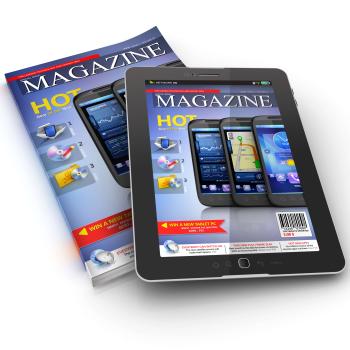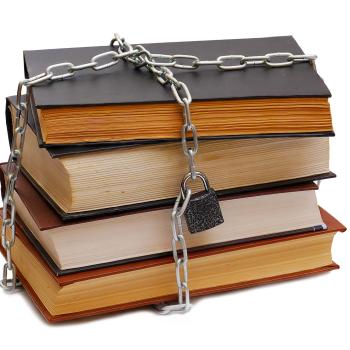Students engage in a rich study of vocabulary words from the song "America the Beautiful," using music and art.

"America the Beautiful": Using Music and Art to Develop Vocabulary

Grades
|
Blurring Genre: Exploring Fiction and Nonfiction with Diary of a Worm
6 - 8
Lesson Plan
| Standard Lesson
After reading several examples of how a published author incorporates facts in fiction writing, students research a topic of their choice and write fictional diary entries that incorporate factual information.

Grades
|
Literacy Centers: Getting Started
K - 2
Lesson Plan
| Recurring Lesson
This lesson gives teachers resources and guidance to create reading, listening, computer, and poetry Literacy Centers in their own classrooms.

Grades
|
Building Vocabulary: Making Multigenre Glossaries Based on Student Inquiry
6 - 8
Lesson Plan
| Standard Lesson
Students choose unfamiliar words from their reading and create a multigenre, multimodal glossary of terms.

Grades
|
An Exploration of Romanticism Through Art and Poetry
9 - 12
Lesson Plan
| Unit
Students use art and poetry to explore and understand major characteristics of the Romantic period.

Grades
|
Using Writing and Role-Play to Engage the Reluctant Writer
3 - 5
Lesson Plan
| Standard Lesson
What does the world look like through a javelina's eyes? Students become javelinas in this lesson when they analyze a character and write from his or her perspective.

Grades
|
Hey Diddle, Diddle! Generating Rhymes for Analogy-Based Phonics Instruction
1
Lesson Plan
| Standard Lesson
Students practice matching rhyming words, apply phonological awareness to analogy-based phonics, and use the interactive Construct-a-Word to create rhyming words by adding a beginning consonant to a word ending.

Grades
|
Exploring Cross-Age Tutoring Activities With Lewis and Clark
9 - 12
Lesson Plan
| Standard Lesson
Interaction and adventure draws high school and elementary school students together as they analyze stories about the Lewis and Clark expedition.

Grades
|
Magazine Redux: An Exercise in Critical Literacy
9 - 12
Lesson Plan
| Standard Lesson
Paper and pixels get compared in this lesson in which students compare both printed and online versions of a magazine.

Grades
|
Critical Reading: Two Stories, Two Authors, Same Plot?
9 - 12
Lesson Plan
| Standard Lesson
Students make predictions about the stories and analyze story elements, compare and contrast the different stories, distinguish between fact and opinion, and draw conclusions supported by evidence from their readings.

Grades
|
Exploring Literacy in Cyberspace
9 - 12
Lesson Plan
| Standard Lesson
It's not just words on a page (or screen)—reading comprehension involves making sense of the text. When students become aware of the analytical strategies they are using, they can explore the similarities and differences between making sense of print and making sense of a website.

Grades
|
Censorship in the Classroom: Understanding Controversial Issues
9 - 12
Lesson Plan
| Unit
Students examine propaganda and media bias, research a variety of banned and challenged books, choose a side of the censorship issue, and support their position through an advertising campaign.

Grades
|
Writing a Movie: Summarizing and Rereading a Film Script
3 - 5
Lesson Plan
| Standard Lesson
Lights! Camera! Action! In this lesson, students view a scene with no dialogue from E.T., write a script for that scene, and perform a dramatic reading while the scene plays.

Grades
|
Reading and Writing About Whales Using Fiction and Nonfiction Texts
K - 2
Lesson Plan
| Unit
Students will have a whale of a good time in this lesson in which they use fiction and nonfiction texts to write a letter to an online scientist.

Grades
|
Phonic Generalizations in Chrysanthemum
K - 2
Lesson Plan
| Minilesson
Students learn about word families by reading Kevin Henkes's book Chrysanthemum, identifying words with certain vowel pair endings, and reading words with similar endings.
Grades
|
Learning Centers: From Shared to Independent Practice
K - 2
Lesson Plan
| Recurring Lesson
Seven blind mice—see how they spend each day of the week in this lesson that uses the book Seven Blind Mice to guide students through shared reading, writing, and listening activities.

Grades
|
Phonics Through Literature: Learning About the Letter M
K - 1
Lesson Plan
| Standard Lesson
Students learn about phonics by focusing on the letter m and participating in an integrated array of activities, including reading, writing, mathematics, music, art, and technology.

Grades
|
E-pals Around the World
6 - 8
Lesson Plan
| Standard Lesson
With e-pals, students develop real-life writing and social experiences, learn the format of a friendly letter and parts of an e-mail message, and discover other cultures, languages, and geographic areas.

Grades
|
Readers Theatre
3 - 5
Lesson Plan
| Recurring Lesson
Students develop scripts, perform, and use their voices to depict characters from texts, giving them the opportunity to develop fluency and further enhance comprehension of what they are reading.

Grades
|
Heroes Around Us
6 - 8
Lesson Plan
| Standard Lesson
Students select, read about, and report on a hero and then identify how their hero matches certain criteria and characteristics. Hero reports are then compiled into a class book.